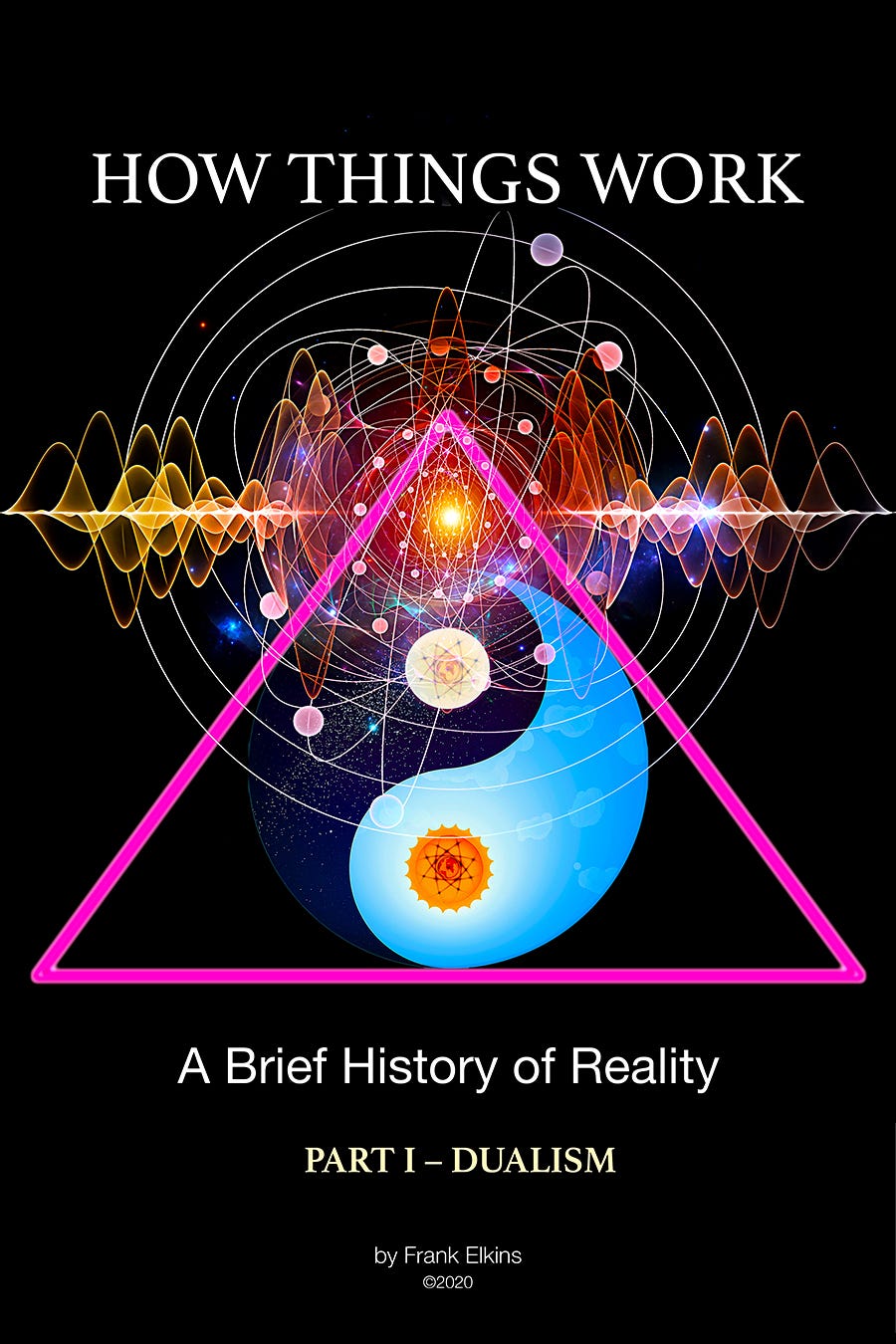How Things Work – A Brief History of Reality
Book I – Dualism (Thomas Hobbes & The Leviathan)
Actually be the smartest person in the room!
Tuesday, 22, 2022
“Curiosity is the lust of the mind.” – Thomas Hobbes
CONSIDERATION #23 – “THOMAS HOBBES” (Argument for Authoritarian Government)
PREFACE
Welcome Everybody!
This week we begin to consider the two basic arguments related to Rousseau’s Social Contract Theory. We start with the argument supporting the absolute necessity for a strong and powerful sovereign made by the renown English philosopher Thomas Hobbes.
“The 17th Century English philosopher Thomas Hobbes is now widely regarded as one of a handful of truly great political philosophers, whose masterwork Leviathan rivals in significance the political writings of Plato, Aristotle, Locke, Rousseau, Kant, and Rawls. Hobbes is famous for his early and elaborate development of what has come to be known as “social contract theory”, the method of justifying political principles or arrangements by appeal to the agreement that would be made among suitably situated rational, free, and equal persons. He is infamous for having used the social contract method to arrive at the astonishing conclusion that we ought to submit to the authority of an absolute—undivided and unlimited—sovereign power.”
Hobbes Moral and Political Philosophy – Stanford Encyclopedia of Philosophy (April, 2018)
Although the need for a new social contract between the government and the governed became a common theme of the Enlightenment, exactly what that new social contract should look like was hotly debated. The main issue being the balance between government authority and individual autonomy. Rousseau, a precursor to Marx, argued for the power of decision making to be delegated to an “Enlightened Elite” who would make the best decisions for everyone. In Rousseau’s vision of the perfect society the most perfect citizens would replace the monarchy as the main state authority. However, this type of “planned perfection” proved inadequate when applied to the French Revolution. The essential argument over the balance of power between government and citizens has remained essentially unchanged since the Age of Reason.
“For in a way beset with those that contend, on one side for too great Liberty, and on the other side for too much Authority, 'tis hard to passe between the points of both unwounded.”
– Thomas Hobbes – Leviathan
The two basic arguments have to do with the necessity for a government to have extremely strong and unchallenged power as a means for keeping the general population under control in order to produce safety and security for the overall society. One argument promotes the necessity for such power because large amounts of people are naturally unruly and require a “strong hand” to keep them in line. Without a strong, dominate, powerful leader any society will collapse and fall apart. The second argument promotes the idea that human beings are not essentially bad and unreasonable. Given the opportunity and power they would generally do positive things that would improve their individual, family, and social reality; they would use their freedom and liberty to do good things. It was the government, not the citizens, that needed strict supervision. Thomas Hobbes was the Empiricist who made the main argument for the necessity of powerful government authority through a forceful autocrat.
“It is not wisdom but Authority that makes a law.”
– Thomas Hobbes
Although recognizing the need for a strong sovereign, Hobbes was not an authoritarian as much as a pragmatic realist. He understood the Enlightenment argument for individual liberty and generally agreed with its “rational” precepts. However, he did not believe the “average man,” or human being, was ready, or reasonable enough, for such a drastic transformation. Although believing that greater individual liberty was essentially a good thing, Hobbes argued that societies were not “self-regulating” entities capable of managing their own impulses. A strong authority figure was necessary for maintaining security and stability within the society. Therefore, a monarch, or other strong authority figure, was still needed.
“Not believing in force is the same as not believing in gravitation.”
– Thomas Hobbes
It is interesting to point out that although Americans, in particular, have a natural resistance to complete government authority, in times of extreme emergency it is not uncommon for even them to revert back to this kind of total government control. Government mandated curfews, a declared state of emergency, and even martial law all represent “temporary” conditions of total and unconditional government control. Hobbes recognized the human tendency to “lose their reason” easily. Therefore, in emergencies, the reasonableness of the individual begins to deteriorate into that state of anarchy Hobbes described as “every man against every man.” Hobbes’ concern about individuals managing themselves in terms of their personal social responsibility is not completely unfounded. He believed that despite the rationality of individual autonomy, societies would collapse without a “Leviathan” to keep them in awe and keep them in line.
CONSIDERATION #20: Need for Authoritarian Government
Thomas Hobbes
“During the time men live without a common power to keep them all in awe, they are in that condition called war; and such a war, as if of every man, against every man…”
― Thomas Hobbes, Leviathan
Thomas Hobbes represents a transition from traditional thinking to the more progressive principles of the Enlightenment movement. In his book, Leviathan (1651), Hobbes argues that although absolute government through divine right is illogical, that because of human nature, a strong authority figure is still necessary. Hobbes considered the “state of nature” to be more of a “state of war” which he called a “war of all against all." Hobbes believed that life before government was anarchy: Solitary, Poor, Nasty, Brutish, and Short. In fact, Hobbes argued that without an absolute invincible ruler, we would essentially all kill each other. Therefore, a strong, ruthless, autocrat beyond challenge was necessary for civilization to exist.
“Hobbes argued that citizens voluntarily give up their individual rights to the sovereign in exchange for protection.”
This is based on the pessimistic view that human nature is fundamentally depraved, and human beings are run by their individual emotions and desires, as opposed to reason, thereby rendering them completely untrustworthy. Hobbes argued that citizens voluntarily give up their individual rights to the sovereign in exchange for protection. All sovereignty then resides with the monarch. According to Hobbes’ view regarding the origins of government, strong monarchies were established to essentially protect us from ourselves.
POSTSCRIPT
Hobbes’ argument is essentially the argument for strong government control and authority. Not necessarily because it is a good thing, but because it is a necessary thing. Although individual autonomy suffers, the benefit to the overall good outweighs it. A strong powerful government, or authority figure, is needed because that is the only thing that works. Hobbes would likely use the French Revolution as an example for why a strong central power is necessary. However, his adversary, John Locke, would likely offer the American Revolution as a counter example.
“The problem with absolute, undivided, unlimited and complete power is that no one ever wants to give it up.”
There is no better demonstration of this dynamic in play than the current COVID-19 pandemic/endemic. At the beginning of the pandemic virtually every government shut their country down, even the United States. In the U.S. the original shut down was for “two weeks” in order to “flatten the curve” of hospitalizations as not to overwhelm the entire health care system. Not having any idea what this new virus was, or what it could really do, most Americans agreed with the need to give their government this extraordinary power. However, after two weeks, the “Leviathan” declared it needed more time; and the fight between the Leviathan and those seeking to “regain” their autonomy and liberty began. The problem with absolute, undivided, unlimited and complete power is that no one ever wants to give it up. Especially the Leviathan.
“There has always been, and continues to be, an argument that ‘the people’ really can’t be trusted to take care of themselves, or each other.”
If you find yourself wanting more government mandates and controls, particularly over individual behavior and conduct, you have a good understanding of what Hobbes was saying: there is a need for very strong authoritarian government. You essentially trust the government to be more reasonable and responsible than “the people.” There has always been, and continues to be, an argument that “the people” really can’t be trusted to take care of themselves, or each other. Just look at them! They are going to provide public safety and security?
It is not uncommon to equate strength with safety and security, therefore they are the critical factors to consider. For those agreeing with Hobbes, safety and security are the primary reasons for creating government in the first place. Therefore, stability, security, and consistency are the key indicators of a good society. A good society requires good, strong, uncontested leadership.
“They believe the Western “delusion” of a free democratic society consisting of free individuals is destined to fail.”
There is currently an argument being made by the leaders of China and Russia that democracies are destined to fall in the long run because they cannot consistently maintain stability, security and reliability, because these qualities are inherently incongruent with individual liberty and autonomy. They, like Hobbes, fear that without a Leviathan to keep people in line, human beings will devolve into anarchy and chaos, eventually destroying themselves and their society. They believe the Western “delusion” of a free democratic society consisting of free individuals is destined to fail. Both Vladimir Putin and Xi Jinping have publicly declared that the future of the world belongs to the Leviathan. They believe the greatest possibility for human potential lies in security and consistency, and that it is their destiny to make it the new reality.
“Both history and reality show that a country will be stable if it has a steady system, and a country will be strong if it has a sound system.
It is in itself undemocratic to use a single yardstick to measure the rich and varied political systems and examine the diverse political civilizations of humanity from a monotonous perspective”
– Xi Jinping
“The Russian president said the ideology that has underpinned Western democracies for decades had ‘outlived its purpose.’
The Russian leader also praised the rise of populism in Europe and America, saying ideas like multiculturalism were ‘no longer tenable’…
He added that liberalism conflicted with ‘the interests of the overwhelming majority of the population…’”
– BBC News (June 28, 2019)
Like Hobbes, Xi Jinping and Vladimir Putin argue that a strong powerful government, or system, is more important than the individual rights of their citizens. In this argument, security and stability are the essential reasons for government, and therefore the government must have the authority to maintain order; this is the foundation of the society. Not only is individual liberty and independence discouraged, it is considered the main factor in destabilizing the social order. Therefore, generally in these types of societies, individual freedom and expression are considered the enemy of the people. The Leviathan is the ultimate symbol of social order; forever protecting the people from themselves.
Next week John Locke counters Hobbes’ argument, claiming it is the Leviathan that needs to be subdued, not the citizens forced to live under its tyranny. The instrument of its subjugation would be the law as wielded through a new weapon of authority, called a constitution.
Learn More About the Idea of America: “Being American: A Primer for All Parties and Persuasions!” Available Exclusively from BooksNotOnAmazon.com
All Three “How Things Work” Books Including “Book-3 The Enigmatic Mystery” are Now Available in One Volume: “How Things Work – Volume I Science & Religion” for Only $9.95! Exclusively through BooksNotOnAmazon.com






